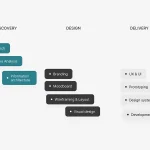
Bangkok, Thailand - Jun 23, 2015 : Group of credit cards on computer keyboard with VISA and MasterCard brand logos
Many banks offer electronic statements to their credit card customers. This type of statement can be viewed at any time through the card issuer’s online banking site. Generally, a notification is sent to the cardholder’s email address if a new statement is available. In addition to email, the card issuer may allow electronic transfers from the cardholder’s checking account. If so, the cardholder may be able to make multiple payments during a statement period, allowing them to use their credit limit more than once.
Credit card interest rates are significantly higher than on loans. Credit card issuers make their money by borrowing money from other lenders and charging it to consumers. The bank earns interest on the money lent to the card user and may also loan the same capital to other borrowers at higher rates. The bank earns more money from credit cards than it does by charging the user interest. Some banks also charge a late payment fee. This fee is not as much as a penalty if the cardholder has sufficient funds to make a payment.
In addition to the interest rates, credit card users can earn rewards points. These points can be redeemed for cash back, travel, or gifts. Using credit cards to make purchases is a good way to build your credit score. The credit card issuer will use this score to assess the credit worthiness of a potential cardholder and approve them for their services. Additionally, some credit cards offer incentives like statement credits or travel vouchers. Whether you use a credit card is entirely up to you, but knowing how to pay off your debt can help you to be debt-free.
While using a credit card is convenient, it has drawbacks. Late fees can add up very quickly when combined with the interest on an unpaid balance. Additionally, missed payments can damage your credit rating. When you are choosing the right credit card, you must carefully evaluate the benefits and costs of each type of card to ensure that it suits your needs. Once you find the card that fits your needs, make sure to pay the minimum each month. If you can, avoid late fees as they can hurt your credit score.
Secured and unsecured credit cards are two popular options for aspiring credit card users. Secured cards require a $200 deposit to open an account and have a chance to qualify for lower deposits. Secured cards are also ideal for those who want to build their credit score. Moreover, business cards allow you to build a business credit score with no security deposit. These cards will help you build a business credit history and allow you to open employee cards.
The government’s Financial Consumer Agency of Canada (FCAC) maintains a database that contains information about credit cards. It is updated quarterly and published on the FCAC website. You can view this information in PDF and Word formats. These documents break down the information by type of card and allow the reader to compare the features of each card. A credit card issuer will only charge the fee for transactions that meet their criteria. This way, they make it easier for you to understand the terms and conditions of each card.







